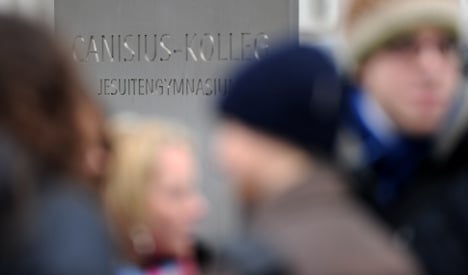“I believe that it will turn out to be a three-digit number,” Klaus Mertes, director of the Canisius secondary school for pupils aged 10 to 19, told the Berliner Zeitung.
Manuela Groll, a lawyer representing victims told the paper that “more and more” victims are coming forward each day.
According to the newspaper, around 50 victims have alleged abuse since the scandal erupted in late January when the school revealed that at least two priests had repeatedly abused students in the 1970s and 1980s.
In early February, the head of the Jesuits in Germany said that a third priest had been suspended and press reports have said that dozens of other cases have been reported at other Jesuit institutions throughout Germany.
The alleged abuse most likely happened too long ago for criminal charges to be pressed, prosecutors have said.
Repeated revelations of paedophile priests have rocked the Roman Catholic church in recent years.
Pope Benedict XVI was due to meet around 30 Irish bishops to the Vatican on Monday and Tuesday after it emerged that Church authorities covered up abuse by priests in the mainly Catholic country for three decades.



 Please whitelist us to continue reading.
Please whitelist us to continue reading.
Member comments